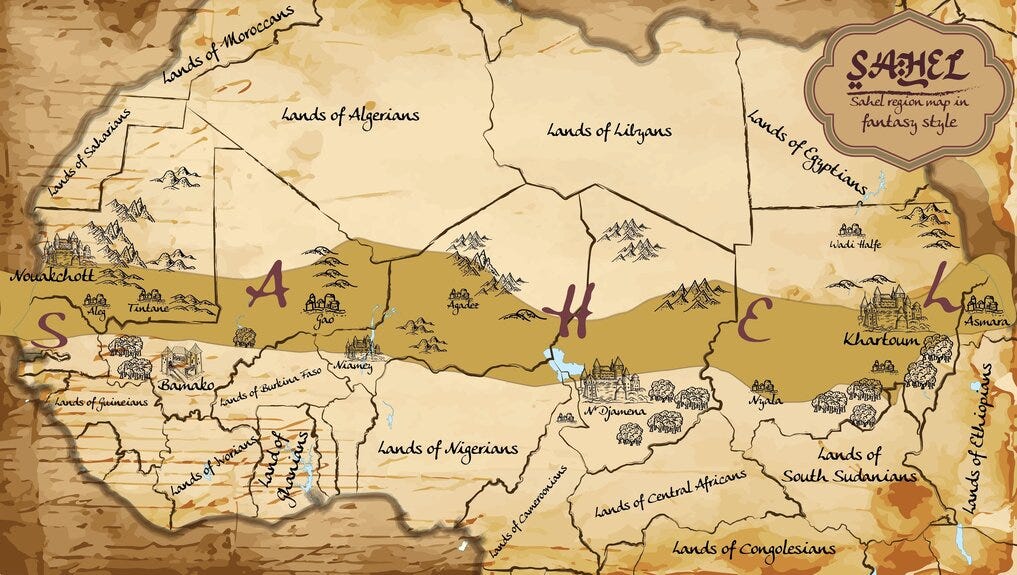Neocolonial Repression or Loss of Justice? Sahel Nations Challenge the ICC
Mali, Burkina Faso and Niger made the announcement that they will be leaving the International Criminal Court, an intergovernmental organization dedicated to international prosecution.
Announced late September, the military-led countries are part of the Alliance of Sahel States. They formed the body upon leaving the Economic Community of West African States. The decision to leave the ICC was made based on the organization’s alleged inability to prosecute war crimes, crimes of aggression, genocide and crimes against humanity. No clarification was made on what they were specifically referring to.
In their statement, the three countries claimed the ICC was “a tool of neocolonial repression” that targeted less privileged countries.
The announcement of the Sahel Alliance’s exit from the ICC comes as organizations such as Human Rights Watch continue to highlight violence by militants and militaries against civilians.
“The leaders of Burkina Faso, Mali, and Niger, in announcing their departure from the International Criminal Court, are depriving their populations of an important international avenue for justice and redress,” said the international justice director at Human Rights Watch, Liz Evenson, per a statement. “The ICC is a global court of last resort, when victims have nowhere else to turn, with investigations in countries around the world.”
Overseeing 125 member nations, the ICC was initially founded in 2002 with the intention of creating a body that could prosecute serious international crimes. With the withdrawal of the countries from the ICC, groups such as the Human Rights
Watch are expressing concern for justice amongst the countries’ citizens.
Per the group, all three countries are currently faced with armed conflicts with armed groups and are being led by “repressive military juntas.” While the Burkina Faso army has faced accusations of killing at least 130 civilians, Mali has also faced similar allegations during counter-terrorist military operation missions, killing six men, three women and a two-year-old boy earlier this year.
Meanwhile, armed groups have attacked schools, mosques and towns.
Highlighted by the Global Centre for the Responsibility to Protect, the issue in the Central Sahel is marked as a current crisis. Several sieges, threats, kidnappings and war tactics have been issued across the areas to increase the armed groups’ influence. Blockades for humanitarian aid are also being constructed, causing starvation. Other violations of International Humanitarian Law include forced taxation and the destruction of essential facilities, such as food reserves and water supply areas.
As for the military juntas, they have also faced accusations of oppression of political opposition, the media and dissent. Through their lead, they have taken control without elections and without proper democratic rule.
By removing themselves from the ICC, Human Rights Watch is warning that neither the government nor the armed groups will be held accountable for their actions.
“The announced withdrawal from the ICC treaty by Burkina Faso, Mali, and Niger will undermine accountability and deprive people in the Sahel of a critical layer of human rights protection when national courts are unable to check impunity for the worst crimes,” said Evenson per a statement.
In the past, however, the ICC has received criticism for its handling of cases against Africa. The relationship between the organization and the African Union as a whole has reportedly been strained in recent years as, out of 54 people that were indicted by the ICC, 47 were from Africa nations.
Amnesty International reports that not one Western leader or military personnel has been the subject of an ICC investigation or has ever been charged. This has led to accusations that there are Western double standards when it comes to the ICC.
“ICL [international criminal law] promises an idealisation of Western liberal criminal law fused with a utopian ethos but is often bogged down in the politics of unequal enforcement that seem to characterise international law,” said scholar Asad Kiyani per Amnesty International.
Although they have announced their intent to leave the ICC, Mali, Niger and Burkina Faso will only be withdrawn from the group one year after notifying the United Nations secretary-general. As of now, neither of the three nations has initiated proceedings to officially withdraw; therefore, they remain bound by ICC agreements.
The ICC’s investigation into war crimes carried out in Mali is not expected to be affected by the recent announcement by the government.
By Veronika Lleshi


